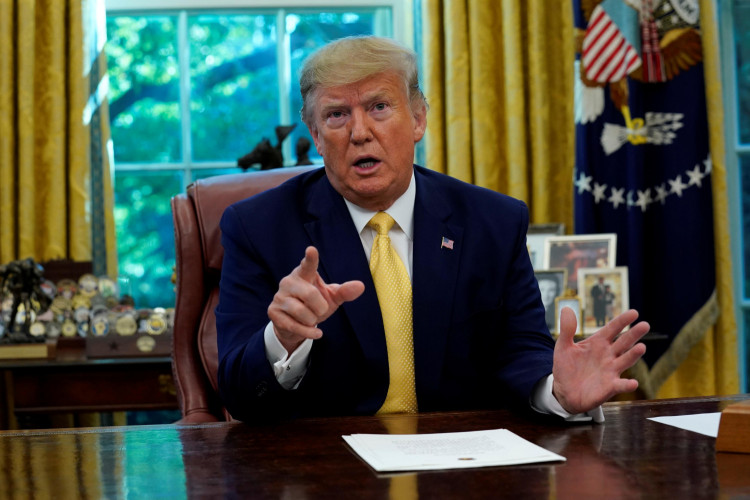The odds of a global economic recession wracking world economies are now "uncomfortably high" with this recession striking anywhere from 12 to 18 months from now, according to Moody's Analytics.
"I think high, uncomfortably high," said Mark Zandi, chief economist at Moody's to CNBC when asked about the chances of a global economic recession.
"I think risks are awfully high that if something doesn't stick to script then we do have a recession," he said on Wednesday. "I'll say this also: Even if we don't have a recession over the next 12-18 months, I think it's pretty clear that we're going to have a much weaker economy."
Zandi also said policymakers might not be able to prevent the global recession from occurring, partly because of the unpredictability of President Donald Trump.
He said avoiding a global recession requires many factors "stick to script" at the same time.
Among these factors are Trump's not escalating his tariff war with China, which now seems unlikely since the White House on Tuesday affirmed the new tariffs set for Dec. 15 will still be imposed.
These key factors also include the UK finding a solution to its intractable Brexit crisis and central banks continuing their monetary stimulus.
Zandi said world governments should increase spending to support their economies, but noted many major countries might not go down that route.
He said the ongoing impeachment inquiry into Trump engulfing the U.S. Congress likely means Congress can't pass any bills to cut taxes.
"This doesn't lend confidence. The central banks are running out of the room, we need fiscal policymakers to step up but I don't think, at this point, it's clear where the political will for doing that is going to come from," he said.
Zandi's dire warning comes only a day after the International Monetary Fund (IMF) reduced its global growth forecast for the year. In its World Economic Outlook report, the IMF said it now expects global economic growth at 3% this year and 3.4% in 2020. These revised figures are lower than the 3.2% for 2019 and 3.5% for 2020 the IMF projected in July.
Like Zandi, the IMF blamed the lower and "subdued growth" partly on rising trade barriers and heightened geopolitical tensions. It called for a "balanced" way to fend off these risks to growth.
"Monetary policy cannot be the only game in town and should be coupled with fiscal support where fiscal space is available and where policy is not already too expansionary," said the IMF in its report.
The IMF revealed global trade growth rose by just 1% in the first half of 2019, the weakest level since 2012. This weak growth was due to higher tariffs and prolonged uncertainty about U.S. trade policies.
The IMF now projects global trade volume will increase just 1.1% in 2019 after expanding 3.6% in 2018. The 2019 estimate is 1.4 percentage points less than it forecast in July and 2.3 percentage points less than it forecast in April.
The World Economic Outlook details the economic problems triggered by the U.S.-China tariff war. Among these problems are spiraling direct costs, unceasing market turmoil, lower investments and stunted productivity caused by supply chain disruptions.
The IMF also predicted announced tariffs will slash global economic output by 0.8% in 2020. This drop translates to a loss of $700 billion.
Trade growth was expected to rebound to 3.2% in 2020. This growth will be endangered by risks, which remain "skewed to the downside.






